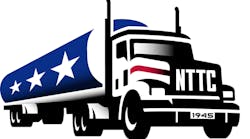Ryan Streblow, the acting president of National Tank Truck Carriers (NTTC), recently joined other trucking industry leaders to discuss priorities with the Biden-Harris U.S. Department of Transportation (DOT) transition team.
Trucking industry representation for the virtual meeting included Chris Spear, president and CEO of American Trucking Associations; John Lyboldt, president of Truckload Carriers Association; Kendra Hems, president of Trucking Association of New York, who represented the 50-state trucking federation; and Adrienne Gildea, deputy executive director for the Commercial Vehicle Safety Alliance.
The transition team was led by Polly Trottenberg, New York City DOT Commissioner, and included subject matter experts in energy, labor, technology, rail, and DOT authority, many of whom had previous experience under the Obama administration, NTTC said.
“The focal point of this initial call was for the transition team to gain valuable insight on top issues impacting the trucking industry,” Streblow said. “Collectively, five key priorities were laid out to initiate the relationship with the new administration: Infrastructure, drug testing, workforce development, emissions and F4A.”
The discussion of infrastructure focused on supporting a fully funded comprehensive bill that addresses the areas of congestion across the U.S. while increasing safety for both commercial motor vehicles and the general motoring public, Streblow said. Industry leaders spoke independently on the topic, emphasizing the potential contributions of advancing technology within transportation on the issue.
The group then addressed their support for drug testing, specifically hair testing and the use of the Federal Motor Carrier Safety Administration’s Drug and Alcohol Clearinghouse. With many states legalizing the use of marijuana, combined with the nation’s opioid crisis, industry leaders emphasized the need for an effective solution to assist the trucking industry in maintaining a healthy, unimpaired workforce. CVSA’s representative recommended a revised CSA program that would pivot away from grading each carrier and instead identify the “bad actors” on the road. Also discussed was the need for increased resources at FMCSA, allowing that agency to focus on being a regulator more than anything else.
Industry representatives also discussed the issue of workforce development and the need for 1 million people to enter the industry within the next five years as one of the top issues facing the industry, Streblow added. The representatives stated a need for support for both urban and rural hiring opportunities for the trucking industry.
On emissions, there was a heavy emphasis on phase I, II and III rulemaking supported by technology, increases in safety, reduction of the industry’s carbon footprint, and reducing congestion due to increased productivity. F4A was acknowledged as a longtime effort of the industry, with the industry representatives voicing support for allowing the courts to decide the authority of the Secretary of Transportation to preserve one set of rules for trucking.
“The meeting was highly productive and displayed a great unity across all of trucking focused on building a positive partnership with the new administration,” Streblow concluded. “With numerous questions and clear interest from the transition team, NTTC expects further opportunities to address ongoing concerns in the trucking industry.”



